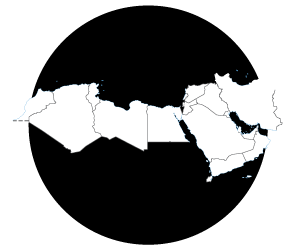We welcome your feedback
Your input matters. Help us improve the CIF website by completing a brief survey. It will only take two minutes and will support our ongoing efforts to serve you better.
This region of 20 economies contains nearly 600 million people — a figure forecasted to double by 2050. Several of the world’s most gas- and oil-rich countries can be found in the region.
Children and young people between the ages of zero and 24 account for 50 percent of its population — a situation that UNICEF describes as having huge potential. As they transition into their most productive years, these young people could become agents of change, creating a more prosperous and stable future.
The Organisation for Economic Co-operation and Growth describes MENA’s potential in similar terms. The region has access to large markets, a young and educated population, and comparative advantages in several sectors, including renewable energies.
North African countries are home to a wide variety of important ecosystems supporting a diversity of jobs, livelihoods, and access to natural resources. The wider region, despite its generally arid climate, is ecologically unique. It is home to over 35 reserves protected under the UNESCO’s Man and the Biosphere Programme, with more than 20 in the Middle East.

The Climate Investment Funds (CIF) interventions are helping the region to achieve energy security, mitigate climate change, reduce greenhouse gas emissions, create green jobs, and emerge as a key player in renewable energies.
Egypt: Concessional financing from CIF’s Clean Technology Fund (CTF) is helping to advance the country’s wind energy ambitions, by piloting a 200-megawatts (MW) wind farm on the Gulf of Suez as a public-private partnership to serve as a model for future green investments. The same fund is also enabling a shift to low-carbon mass transport in Cairo.
Morocco: In a country where imported fossil fuels satisfy 97 percent of its energy needs, CTF is enabling the development of its vast wind and solar resources. Concessional financing is contributing to 1,070 MW in new wind power capacity and helping to establish the infrastructure needed to make it commercially viable. Meanwhile, the piloting of the county’s first solar photovoltaic plants are expected to pave the way for nationwide development.
Tunisia: Tunisia is benefiting from CTF investments to advance its concentrated solar power ambitions, alongside support under CIF’s Forest Investment Program for increasing carbon sequestration in its forest and agro-sylvo-pastoral landscapes.
Your input matters. Help us improve the CIF website by completing a brief survey. It will only take two minutes and will support our ongoing efforts to serve you better.
